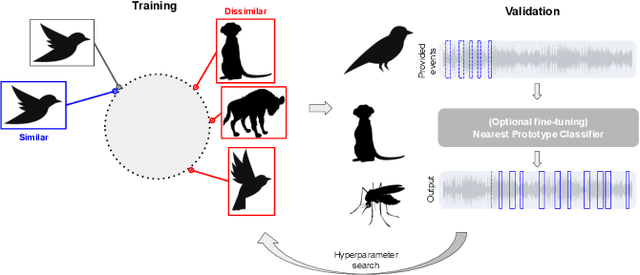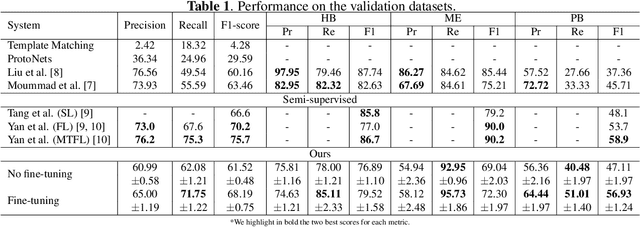Regularized Contrastive Pre-training for Few-shot Bioacoustic Sound Detection
Paper and Code
Sep 16, 2023



Bioacoustic sound event detection allows for better understanding of animal behavior and for better monitoring biodiversity using audio. Deep learning systems can help achieve this goal, however it is difficult to acquire sufficient annotated data to train these systems from scratch. To address this limitation, the Detection and Classification of Acoustic Scenes and Events (DCASE) community has recasted the problem within the framework of few-shot learning and organize an annual challenge for learning to detect animal sounds from only five annotated examples. In this work, we regularize supervised contrastive pre-training to learn features that can transfer well on new target tasks with animal sounds unseen during training, achieving a high F-score of 61.52%(0.48) when no feature adaptation is applied, and an F-score of 68.19%(0.75) when we further adapt the learned features for each new target task. This work aims to lower the entry bar to few-shot bioacoustic sound event detection by proposing a simple and yet effective framework for this task, by also providing open-source code.
 Add to Chrome
Add to Chrome Add to Firefox
Add to Firefox Add to Edge
Add to Edge